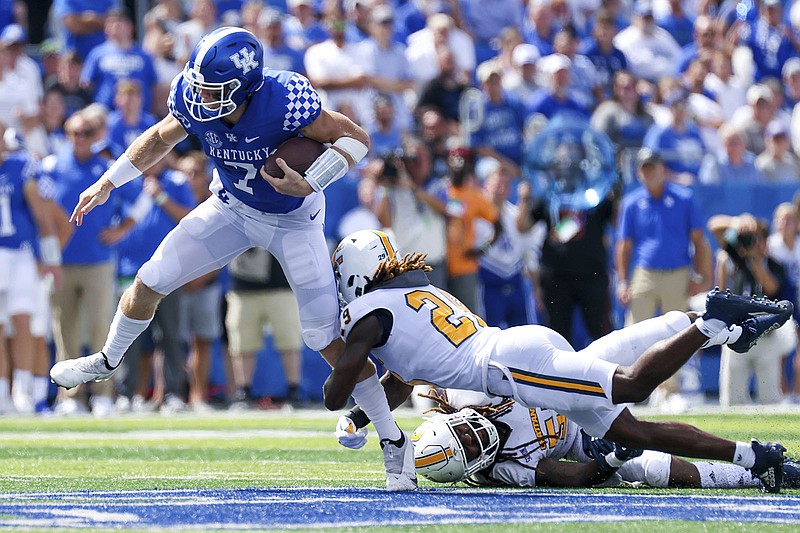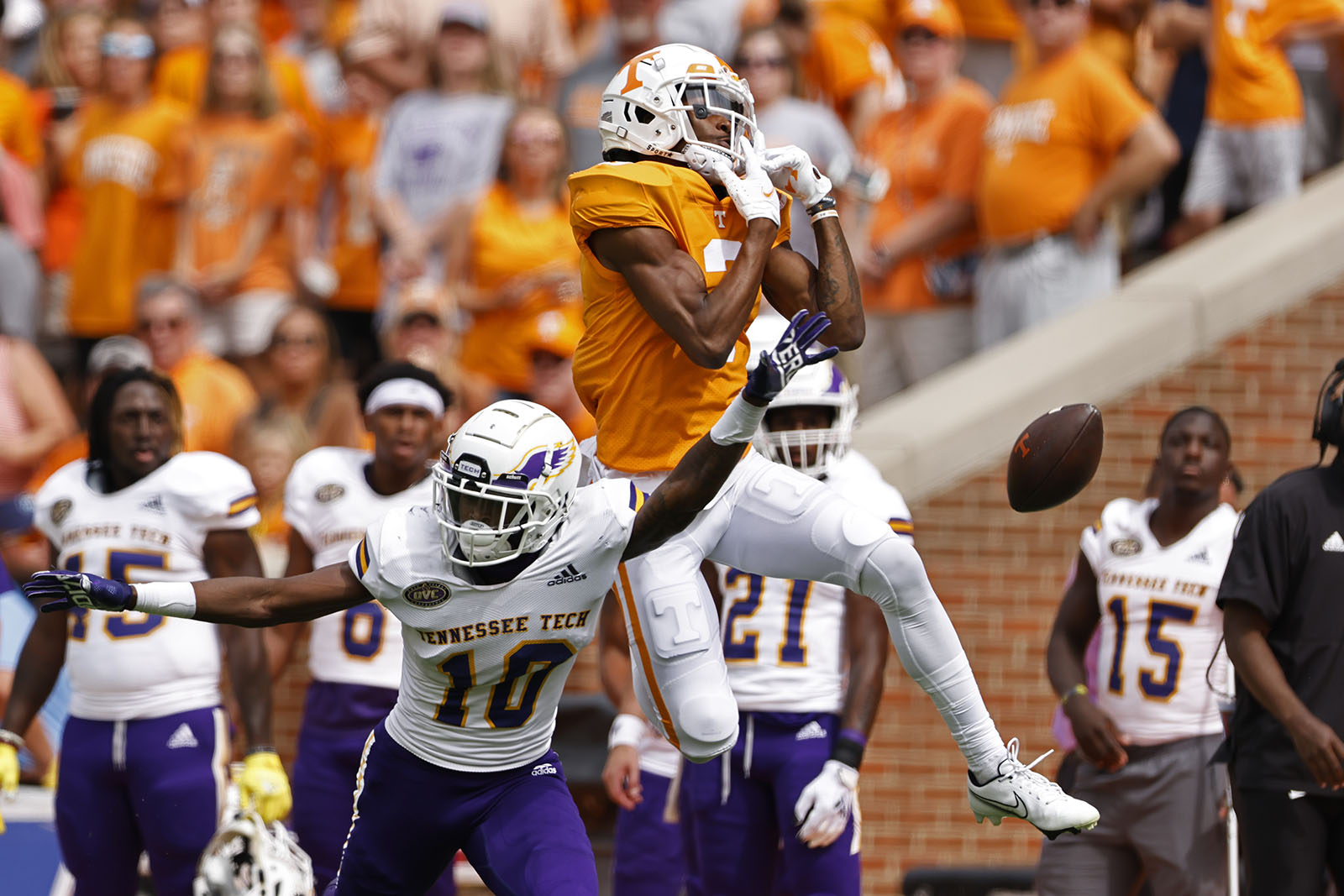No matter the final numbers posted on the scoreboards at Tennessee's Neyland Stadium and Kentucky's Kroger Field on Saturday afternoon, the football teams at Tennessee Tech and the University of Tennessee at Chattanooga were perceived as big winners within their athletic departments.
That's because regardless of Tech's 56-0 loss to the Volunteers and UTC's oh-so-close 28-23 defeat against the Wildcats, both the Golden Eagles and the Mocs were handed $500,000 checks for their troubles.
"It helps offset our football budget," said UTC athletic director Mark Wharton, whose football program always spends more money than it makes.
Concurred Tennessee Tech AD Mark Wilson: "Any revenue we get is important. Earning $500,000 to add to our $12 million athletic budget is extremely important. A lot of things could suffer without that money."
But each man knows these "money games" or "guarantee games," as they are sometimes known throughout the industry, could be lost far sooner than later for Football Championship Subdivision programs such as theirs. Conference realignment in the 10 leagues that make up the Football Bowl Subdivision, Division I's upper tier, figures to push such games and the smaller crowds they draw closer and closer to extinction.
"TV revenue revenue comes down to eyeballs," Wilson said. "The reality is these kinds of games (FCS versus FBS) don't do well in the ratings."
Saturday provided a perfect example of Wilson's point. Though the Southeastern Conference routinely relegates its less favorable matchups to the SEC Network, these two games were viewed so poorly by television executives that they were placed on ESPN+ and SECNetwork+, which are pay streaming services only, which means you had to go through the internet to watch them rather than them being shown on any TV network.
And what would that mean to athletic departments at the FCS level, especially UTC?
"If we can't continue to play those games, we'd have to find a way to offset that loss of revenue in other areas," Wharton noted.
Asked for details, he replied: "Well, you might have to bus somewhere the day of a game rather than travel there the day before and get a hotel room."
Wilson agreed, but he also offered a different reason for concern.
"One big thing we'd lose is exposure," he said. "Playing an FBS team on television gives you tremendous exposure you wouldn't garner otherwise. It opens eyes to high school students to take a look at Tennessee Tech. You can't buy that kind of exposure."
After Saturday's loss to Kentucky - which, like the Vols, is part of not only the FBS but the even more elite Power Five as a Southeastern Conference program - UTC senior defensive back Rashun Freeman said the loss of such opportunities would also lessen the overall experience for the student-athlete.
"I think most players at FCS schools want to play in big games against (Power Five) schools," said Freeman, who had an interception in Lexington. "A lot of players think they were overlooked by those schools in recruiting and want to prove they could have played at that level."
Freeman said he didn't know if not playing such schools would hurt FCS programs in general, especially in recruiting, but he did note a negative in losing the chance to play high-profile FBS programs that has nothing to do with athletic department revenue, but much to do with an individual player's opportunity for revenue beyond his college eligibility.
"I think NFL scouts want to see you play against the highest level," he said. "They want to see you against an SEC school."
So do the fans. Though the Golden Eagles didn't sell their complete allotment of tickets for Saturday's game in Knoxville, they did sell hundreds because, in Wilson's words, "Our fans wanted to wear their purple and gold inside Neyland Stadium." The sentiment was reportedly similar for UTC fans, even if the longer drive to face one of the few SEC opponents the Mocs had never played probably fell short of the numbers of Tech fans who drove to Knoxville.
"Whenever they got ready to mash us, they mashed us," Mocs coach Rusty Wright said on a postgame Zoom call after watching his team's hard-earned 16-14 lead in the first 93 seconds of the fourth quarter disappear three minutes later. "(Against) a Group of Five school, maybe. But at this level, it gets hard. This is a different level."
For the Power Five - with the SEC joined by the Atlantic Coast Conference, Big Ten, Big 12 and Pac-12 in that number - it may be rising to such a level that it is no longer financially advantageous to play such games.
In UTC's case, that means upcoming matchups against Illinois, Alabama, Tennessee and Florida could be gone for good within five or six years. In Tennessee Tech's case, trips to Kansas, New Mexico, Georgia and Mississippi State could also be at the end of the line.
"When it comes to Tennessee, they've been especially accommodating in all our sports," Wilson said. "But I'm deeply concerned for the future. I think there's an extremely high probability we'll see those (money) games go away."
If he's right, you can't help but wonder what else will go away from FCS programs without that source of revenue.
Contact Mark Wiedmer at mwiedmer@timesfreepress.com. Follow him on Twitter @TFPWeeds.


